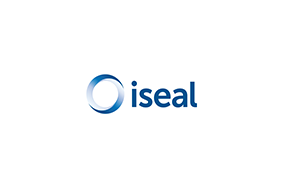From Certifying Operations to Transforming Systems
Published 11-20-18
Submitted by ISEAL

Trevally in water © Marine Stewardship Council
These ‘systemic impacts’ help to create an enabling environment for production and consumption practices that benefit people and the planet, and contribute toward the Sustainable Development Goals. They include both tangible impacts, such as the creation of public and private policies or new partnerships, and intangible impacts, such as building trust and influencing socio-cultural attitudes.
WWF and ISEAL commissioned sustainability consultancy Aidenvironment to explore this largely uncharted territory.
Jan Willem Molenaar from Aidenvironment, said: “Although systemic impacts can be difficult to capture, we found numerous examples of changes large and small that standards have helped to bring about. Increased understanding of these systemic impacts can help standards and their stakeholders become more effective in improving the enabling environment for sustainable production.”
The white paper, which explores the concept of systemic impacts, shares case studies of a number of potential impacts including:
Stakeholder collaboration: Standards can help facilitate dialogue between multiple stakeholders, strengthening coordination, strategies and partnerships to tackle key sustainability issues. In some cases, such dialogue has led to the development of new industry initiatives and jurisdictional approaches. For example, in Sabah, Malaysia the state government, industry and civil society are working together to certify all oil palm operations to the Roundtable on Sustainable Palm Oil (RSPO) standard by 2025.
Knowledge and investments: Standards can help expand the knowledge base and develop tools to support sustainable production, pioneering concepts such as the high conservation value (HCV) approach and paying living wages. There are also cases where some standards have funnelled investment into training and capacity building that improves practices among large numbers of producers, not only those seeking certification.
Policies and behaviour: By engaging with businesses, government and the finance sector, standards are in a strong position to work with partners to influence policies, corporate behaviour and public opinion. The paper notes many cases where standards have directly influenced government policy and regulations in several countries and sectors – from aquaculture in Vietnam and coffee in Brazil to cotton in Mozambique and forestry in Peru.
Andrea Dreifke-Pieper, Director Markets & Finance, WWF Germany, said: “To bend the curve of biodiversity loss, we urgently need to shift to new sustainable production and consumption systems. This latest research demonstrates that voluntary sustainability standards have a valuable role to play – not just through positive conservation impacts at a local level, but by tackling the underlying causes of unsustainable practices and advancing better alternatives.”
Karin Kreider, Executive Director of ISEAL, said: “It’s clear that ISEAL member standards are delivering positive impacts well beyond individual value chains and certified operations. We believe there’s great potential in strategically targeting these systemic impacts. We look forward to building on this initial success to achieve even greater and longer-lasting benefits for people and the environment.”
For WWF, ISEAL, its members and other stakeholders, putting more strategic emphasis on targeting and monitoring these systemic impacts is an opportunity to achieve broad and long-lasting benefits for people and nature.
- Register for the webinar ‘From certifying operations to transforming systems’, 3 December, where WWF, ISEAL and Aidenvironment present the findings and examples of systemic impacts.

ISEAL
ISEAL
ISEAL supports ambitious sustainability systems and their partners to tackle the world’s most pressing challenges. With our growing global network and our focus on credible practices, we drive impact and make markets a force for good. From the climate emergency and biopersity crisis to human rights and persistent poverty, the world needs scalable and effective solutions. Our convening power and thought leadership accelerate positive change on these critical challenges, so companies and governments can meet their sustainability commitments and the UN Sustainable Development Goals.
We work by:
- defining credible practice for sustainability systems based on emerging global consensus
- convening forums for collaboration, sharing of experience and collective action
- delivering expertise, advice and training
- facilitating and promoting innovation to strengthen sustainability systems.
Together, we can deliver real and lasting change for the benefit of people and planet. Get Involved
More from ISEAL

